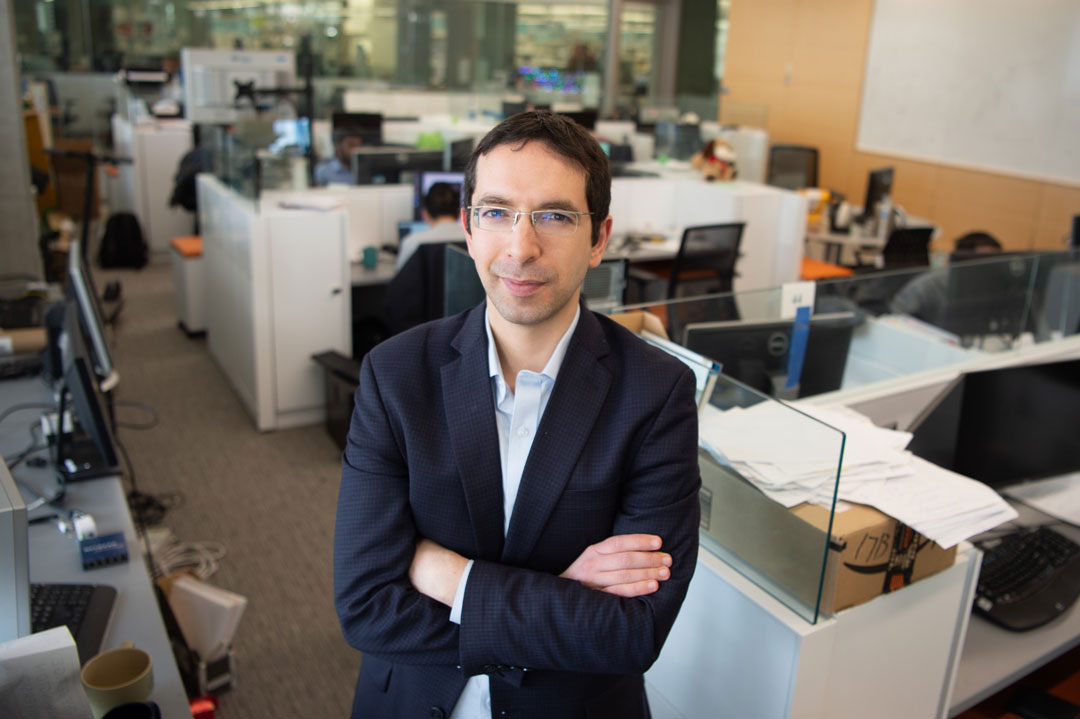Francesca interviews Dr. Omur Ozel on his research that he conducts at the George Washington University. Professor Omur Ozel, his collaborators and his research group work for building a broad understanding of next-generation networked systems under dynamical energy constraints.
Francesca: Can you please describe in simple terms the research that you conduct?
Dr. Ozel: My research is in general wireless communications, information theory, signal processing, systems and networks. My research efforts mainly target optimal resource management in networked nodes
deployed at the wireless edge of the Internet of Things for energy efficiency, system security, information freshness, quality, security and throughput.
Francesca: What is the significance of your research in terms of practical applications?
Dr. Ozel: In a wide range of sensor networking applications including those used in environmental and health monitoring, smart grid and transportation, users need the data to be as close to real-time as possible while satisfying energy, security, throughput and quality constraints. Understanding the interplay among various objectives in this realm promises to unlock the potentials of energy self-sufficient, green and sustainable wireless autonomous networked systems.
Francesca: Which of your research areas is most interesting or most challenging to you? Why?
Dr. Ozel: My research provides concrete analysis tools and algorithms for efficient resource management in wireless nodes. It requires careful mathematical analysis and proofs. Translating the mathematical analysis into practical system implementations is at times challenging. The impact of my research is contingent on balancing the math and practical implementations. Identifying core engineering problems that have significant prevalence in applications is the first step. Much effort needs to be put to prove mathematical results by using optimization tools while validating them by collecting data from practical implementations.
Francesca: How did you become interested in this field of research?
Dr. Ozel: Since my doctoral thesis work, I have been involved in understanding energy and security and their roles in communication systems. My current works are natural continuations of my doctoral work with various additions and modern new aspects due to evolving technology and science.
Francesca: What are the challenges or limitations associated with this field of research?
Dr. Ozel: Main research challenges in this research field can be categorized broadly as finding accurate models that capture critical aspects of new applications, determining new performance metrics for these applications and finding new methods of optimization, inference and learning for maximal performance. Current state of the art in my research field falls short of capturing a unified view on critical aspects such as dynamic energy and connectivity with time-sensitivity and accuracy. As such new metrics and methods are needed.
Francesca: What are the goals of your research? What are you hoping to achieve or learn?
Dr. Ozel: The main goal of my research is to characterize fundamental performance limits of wireless networked systems by capturing a unified view on mentioned critical aspects. We develop novel analysis and optimization methods for nodes to infer when energy and/or critical information are available in the environment or other nodes in the network and when channel conditions are best for transmissions.
Francesca: Is there anything about your research that you think makes it unique from other research being conducted in this area?
Dr. Ozel: The unique aspect of my research is its capability to address broad problems relating to information transmission in wireless networked systems under energy constraints. This effort contributes to combine analysis techniques in various disciplines.
Francesca: What successes or milestones have you reached thus far in your research?
Dr. Ozel: We have recently uses Age of Information (AoI) metric to analyze data freshness in communication systems under dynamic energy constraints. We target intermittent computing as a novel aspect of energy harvesting communication systems. New phenomena due to intermittent computing such as power failures and restarting a failed process brings about unique problem formulations. Our recent research efforts have been targeted to model and analyze this problem. We have developed results that show the effect of intermittent power outages on the data freshness of communicated information. This modeling and analysis effort bear strong potentials to obtain analytical insights for novel computation-communication tradeoffs in wireless networked systems with energy harvesting functionalities.
Francesca: Are you collaborating with anyone else? Who funds your research?
Dr. Ozel: I collaborate with other colleagues in the ECE Department as well as other researchers in various schools in the US. I do not have a research funding until now but a major source of potential research funding I target is National Science Foundation.
Francesca: What role do GW students play in your research?
Dr. Ozel: I work with two PhD students in the ECE Department. They perform analytical and simulation-based studies to support results we develop together. This is also the research they need for their PhD or master level work.
Francesca: What do you gain from these two Ph.D. student's involvement?
Dr. Ozel: Their involvement is an essential part of research activities in GWU and my job as a research advisor. Their youthful energy and different points of view on the research problems sometime affect my thinking as well. I like interacting with students.


